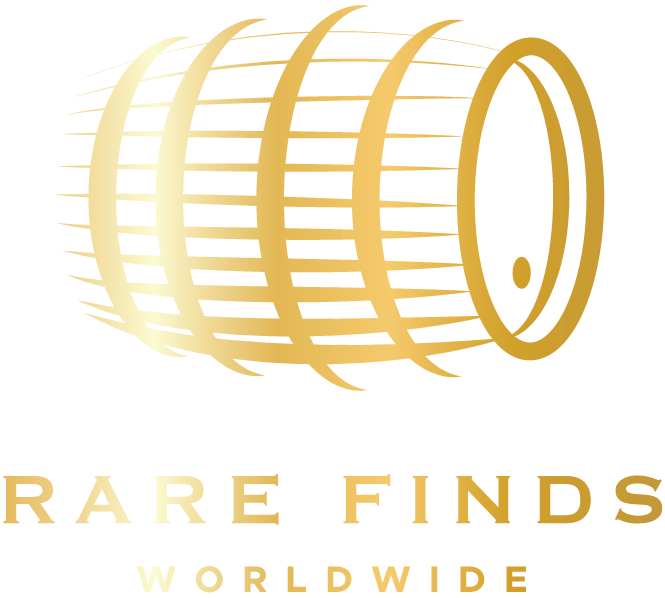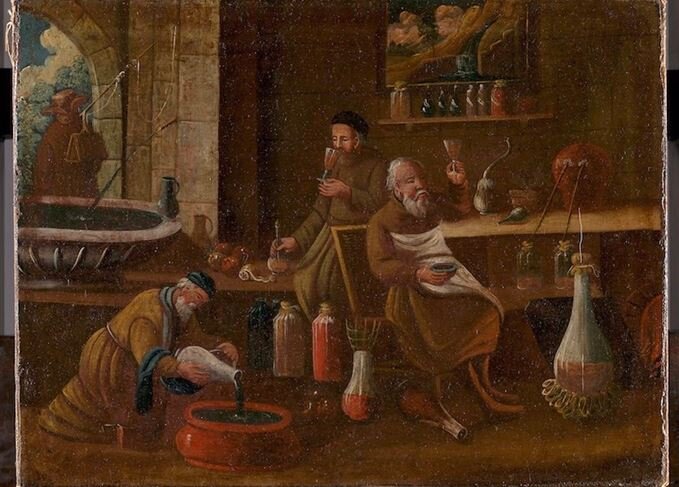Scotch whisky today is a universally-known product, with its industry seen in nearly every country on earth – whether it’s the enjoyable bottle or the industry’s legal authorities’ tireless work to get Scotch legally recognised as a unique product of Scotland. Scotch is consumed by people of every stripe, creed and class, bearing a seemingly unbreakable image of luxury. Yet few commentators ever explored the structure of the industry, the big players may not be well-versed on how exactly we arrived at today’s market conditions. With the increasing viability of Scotch as an investment opportunity, the history of this business should be explored.
Medieval Roots and A Century of Criminality
Picture Credit: Wellcome Collection
To understand today’s industry landscape, we must first turn our attention to the beginning: 1494 witnessed the oldest order of whisky issued by James IV of Scotland. During this time whisky was primarily produced by monks for medicinal purposes.
With the disbandment of monasteries in 1536 ordered by Henry VIII of England, these monks were forced into private business; many of these holy men saw the profit potential in their “water of life” and became the first private distillers. An ever-expanding market arose during this time until the Act of Union in 1707, which bonded Scotland with England. After the formation of the United Kingdom, taxes were raised following the introduction of the English Malt Tax of 1725 which began the whisky industry’s continuous battle with unfair levels of taxation. This Act made almost any legal distilling impossible, Scottish people of all backgrounds spent nearly a century harbouring illegal whisky distilleries and their produce. This widespread illegal trade only abated with the Excise Act of 1823, which allowed distilleries to be set up for a fee and under a fair tax regime. This opened the flood gates for whisky production, with families and small corporations setting up over 110 distilleries across Scotland.
The Industrial Revolution brought about many great changes for whisky production; one of these innovations was trains, combined with their tracks leading near or, in the case of Ardmore, directly to the distilleries. More whisky was being produced and rapidly shipped away than ever before, yet it would be the 20th century that ushered in the most revolutionary period of whisky’s long history.
Giants Born in Fire
Distillers Company Limited (DCL). Picture Credit: WhiskyCiti
The highs achieved during industrialisation and legalisation withered under WW1. There were 159 operational distilleries before the War and this dropped to eight by 1918 before returning to just over a hundred in the immediate post-war years. Post-war market conditions forced distilleries to merge with their competitors, creating the first major beverage corporations. The largest of these was the Distillers Company Limited (DCL) which came into existence in 1877. Its business expanded drastically in 1925 through a deal called the “Big Amalgamation”, in which the five largest independent distilleries at the time (Buchanan, Dewar, Walker, Haig and Mackie) joined DCL to secure their profits by collectively cornering the market. By the 1970s, DCL would produce over 60% of all Scotch whisky in the world.
DCL’s dominance maintains today under the name Diageo – a new company that Guinness and Grand Metropolitan formed in 1997 after acquiring DCL. Mergers like this only increased during the 20s & 30s as the Prohibition and the Great Depression hit the Scotch Whisky industry, causing distilleries that failed to adapt to go out of business.
The Second World War brought forth the most significant transformation to Scotch Whisky. It drastically reduced the number of distilleries in business and radically shifted the UK government’s attitude towards the industry. The Battle of the Atlantic threatened to cut off all foreign shipping into the isles as Germany sunk thousands of ships. This resulted in strict rationing on all goods including the Barley needed for whisky production. Despite Churchill’s request of “on no account reduce the barely for whisky – this takes years to mature and is an invaluable export and dollar producer”, whisky production was shut down from 1942 to 1944. However, Churchill’s views on the industry had cemented themselves into UK government thinking, especially with the ruined economy the Kingdom was left with. The Scotch industry was no longer being targeted with business-ending levels of taxation and Scotch was considered an indispensable national economic asset.
Single Malt Scotch Whisky: The Industry Today
With the lifting of restrictions in 1954 and newfound government support that extends to today with the fight against American tariffs, the whisky industry has been rising in global prominence. It has grown from its ancient rebellious foundations into a highly-concentrated, conglomerate-led market. Now international companies dominate the industry; a spree of buying from the end of the war meant that by the early 1960s, over 60% of Scotch distilleries were owned by foreign entities.
As of today, the majority of whisky is produced under the banner of four companies – Diageo, Pernod Ricard, Bacardi, and William Grant & Sons, the only Scottish family-owned entity out of the four. Collectively, they account for 68% of the market share for the entire industry. Whilst traditionalists might decry the loss of family-owned aspect of whisky, this new era represents an unprecedented opportunity for Scotch. With these large conglomerates pouring ginormous amount of capital into the industry, everything from whisky-related tourism to the number of new distillery openings is improving dramatically.
Indeed, the entire industry is becoming more diverse with the recent rise of whisky investors and brokers whose efforts mean that collectors around the world have the opportunity to own some of Scotland’s greats. Furthermore, treating whisky as a legitimate investment encourages further development and innovation in the market, benefiting all whisky loving consumers.
Other entities have also become notable in the industry such as brokerages, connecting collectors, investors and distilleries alike. Rare Finds Worldwide, a tailored whisky brokerage, utilises decades of industry experience to secure some of the most sought-after whiskies and casks for our international clientele. From selection, purchase, to storage and exit, we ensure that consumers can find the gems that every passionate whisky lover dreams of, making sure that whether the purchase was for drinking, collecting or appreciation, our clients get the best. This modern market ultimately means that everyone from consumers to investors benefits, and that whisky continues to be enjoyed by peoples across the world.





